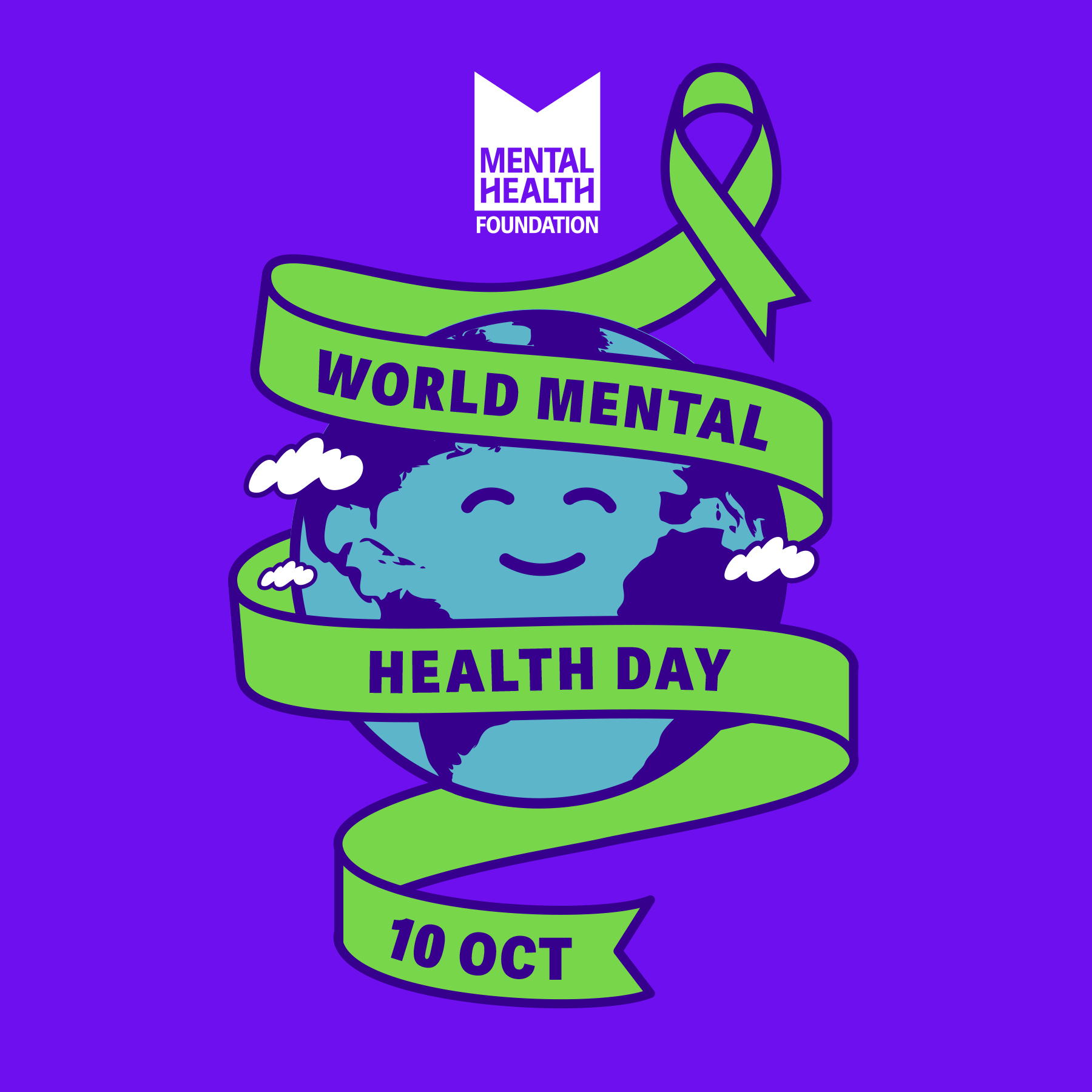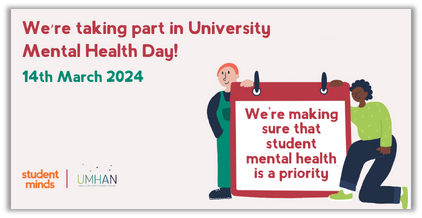Our Next Have Your Say Meeting
How to Participate:
The next one is on Monday 9th June and is a virtual meeting via Microsoft Teams at 12pm-1pm.
We want this to be a focused group and are only asking for people who have completed treatment with NHS Somerset Talking Therapies to register. You can sign up at this link. Sign up link to have your say meeting
One of our fantastic team leads has created a video to explain more about our service which would be helpful for you to watch before the meeting, This can be found on our facebook page https://fb.watch/xJPle59XU-/
Together, we can create a positive impact. Your experience and insights are crucial.


Empty Nest Syndrome
Understanding Empty Nest Syndrome: Coping with Change and Finding New Purpose
The moment your child packs their bags and leaves for university, moves into their first home, or starts a new chapter of their life, the house feels quieter. A bit emptier. And suddenly, you find yourself grappling with a range of emotions you might not have expected. This is what’s commonly referred to as empty nest syndrome—a time of transition that many parents face as their children grow up and leave home. While it’s a completely natural and often bittersweet process, empty nest syndrome can leave parents feeling a mix of sadness, loss, or even relief. To add to the complexity this often comes at a time in life when there are additional challenges such as other teenage children, menopause and financial challenges.
If you’re going through this experience, or you’re trying to understand what it feels like for someone who is, this post is for you. We’ll explore what empty nest syndrome is, why it happens, and how to cope with this life change—whether you’re a parent, a partner, or a friend.
What Is Empty Nest Syndrome?
Simply put, empty nest syndrome is the emotional response that many parents experience when their children leave home. The feeling of “empty” refers not just to the physical space in the home, but also the emotional void that parents sometimes feel when their children become more independent.
For some parents, this time may bring a sense of pride and accomplishment. Their children are taking steps toward independence, and they’re excited to see them thrive. For others, it can bring a deep sense of loss, loneliness, and even grief. The house is quieter, routines change, and the role of “parent” shifts in ways that can be hard to navigate.
Why Does Empty Nest Syndrome Happen?
Empty nest syndrome occurs for several reasons, many of which are tied to identity and lifestyle changes. As parents, raising children often becomes a central part of who we are. Our lives revolve around their needs—helping with homework, cooking meals, driving them to activities, and providing emotional support. So, when they leave home, it can feel like a big part of your purpose and daily routine has disappeared.
On top of that, children leaving home can trigger feelings of loss—loss of control, loss of the family unit, and even loss of time spent with them. It can feel like a major life shift, and while it’s a milestone for your child, it’s also a major shift for you.
It’s important to understand that empty nest syndrome is not just about missing your kids. It’s about the complex emotions that arise when your home and your life undergo such a significant change.
The Emotional Impact of Empty Nest Syndrome
While the experience of empty nest syndrome is unique for every parent, it’s common for emotions to range from sadness and loneliness to relief and freedom.
Sadness and Grief
For many parents, the departure of a child is accompanied by grief, a mourning of the child’s childhood or of what might feel like an end to a phase of life. You might miss the little moments—hearing the sound of their footsteps, their laughter, or even their daily complaints. The quietness in the house can feel overwhelming at times.
Loss of Identity
Many parents invest a great deal of their identity in raising their children. When they leave, it can feel like you’ve lost your role or sense of purpose. “What’s next?” you might ask yourself. “Who am I now?”
Changes in Relationships
Empty nest syndrome can also affect relationships with your partner. You may have become so focused on raising your children that you lost sight of nurturing your relationship. Now that your children are gone, you may need to redefine your connection with your spouse or partner. It can be an opportunity to reconnect, but it can also bring tension as both partners adjust to this new phase of life.
Feelings of Relief or Freedom
On the flip side, some parents feel a sense of freedom when their children leave. After years of parenting, it can be liberating to reclaim time and space for yourself. This is normal too—there’s no “right” way to feel. It’s important to recognise that the transition is complex, and feelings of relief don’t diminish your love for your children or the bond you share.
How to Cope with Empty Nest Syndrome
While this is a time of transition, it doesn’t have to be a painful one. There are plenty of ways to cope with empty nest syndrome and turn this period of change into a time of personal growth.
- Acknowledge Your Emotions
It’s crucial to give yourself permission to feel whatever emotions come up. Whether you’re sad, angry, or even relieved, these feelings are part of the transition. Don’t suppress them. Talk about them with friends, family, or a therapist. Allowing yourself to feel is the first step toward finding peace.
- Reconnect with Yourself
With more time on your hands, consider revisiting old hobbies, discovering new interests, or setting new goals. Is there something you’ve always wanted to learn or try? This can be a great time to explore personal passions or take up new projects that excite you. Whether it’s painting, traveling, or running a marathon, finding something that brings you joy will help shift the focus back to your own growth.
- Strengthen Relationships
Empty nest syndrome doesn’t mean your life has to become isolated. It can be an opportunity to reconnect with your spouse, your friends, or even other family members. Rediscover each other and focus on nurturing the relationships that may have been set aside while you were busy raising your kids.
- Focus on Self-Care
Your physical and emotional well-being should be a priority. Try to stay active—whether through yoga, hiking, or regular walks. Exercise releases endorphins, which help reduce stress and improve mood. You might also want to focus on other aspects of self-care, such as meditation, journaling, or simply taking time to relax with a good book or a cup of tea.
- Volunteer or Mentor
If you’re feeling a sense of loss, helping others can be incredibly fulfilling. Volunteering or mentoring younger people can provide a sense of purpose. Plus, it keeps you connected to your community and gives you a chance to pass on the wisdom you’ve accumulated through the years.
How to Support Parents Going Through Empty Nest Syndrome
If you’re someone who has a friend, family member, or partner going through empty nest syndrome, offering support can make a big difference. Here are a few tips on how to help:
- Listen actively: Sometimes, just having someone to talk to can ease the pain. Be a sounding board without rushing to offer solutions.
- Offer encouragement: Remind them that this is a natural part of life’s journey and that they’ll find new meaning and fulfilment.
- Give them space: Understand that they might need time to adjust and that their emotions may ebb and flow.
- Suggest fun activities: If they’re open to it, invite them to try new things together or reconnect with old interests.
Embracing the New Chapter
Empty nest syndrome can be a difficult and emotional experience, but it’s also an opportunity to discover new joys and redefine your purpose. Although it may take time to adjust, many parents eventually find peace and fulfilment in this new phase of life. It’s a time of reflection, growth, and renewal—not just for your children, but for you as well.
While the house may be quieter, the potential for new experiences and personal growth is limitless. Embrace this next chapter, and remember that, though your children may have left the nest, your relationship with them continues to evolve and thrive in new ways.
Where to get more help?
GP – If you are struggling, please arrange to speak with your GP
If you need further support and are struggling with low mood and/or anxiety because of this significant change in your life, please visit the Somerset Talking Therapies website which hosts a wealth of resources, as well as details of specific groups and interventions offered and opportunity to self-refer:
https://www.somersetft.nhs.uk/somerset-talking-therapies/
Often universities have practical information and guidance on their websites for parents and carers.
Mindline Somerset – Call 01823 276892 (local), 0800 138 1692 (freephone) Open 24 hours a day, 7 days a week. A local confidential telephone support line for anyone who is experiencing or has experienced emotional or mental distress. They can also support you to access a crisis safe space at localities across Somerset and link you in with other services. Mindline Live Chat available every day from 8-11pm – https://www.mindinsomerset.org.uk/our-services/open-mental-health/chat/
Family Lives – https://www.familylives.org.uk/how-we-can-help/confidential-helpline
Family Lives offers a confidential and free helpline service for families. Please call on 0808 800 2222 for emotional support, information, advice and guidance on any aspect of parenting and family life. If you don’t get an answer first time please do try again. Helpline opening hours: Monday to Friday 9am to 9pm, Weekends 10am to 3pm.
Somerset Recovery College – https://somersetrecoverycollege.co.uk/register/This organisation offers opportunities to learn about mental health and recovery by providing a unique curriculum designed to increase your knowledge, understanding and skills to equip you with the tools to live a meaningful, productive and fulfilling life
Open Mental Health – Call 01823 276892 (local), 0800 138 1692 (freephone), https://openmentalhealth.org.uk/Supports people to live a full life by enabling access to specialist mental health support, debt and employment advice, volunteering opportunities, community activities and exercise. The service is accessible for adults in Somerset who are suffering from mental health problems.
World Menopause Day 2024 - October 18th 2024
Happy World Menopause Day!
Today on the 18th of October, is annual world menopause day, which aims to raise awareness of the symptoms and impacts of the menopause, and the options available for support to help improve health and wellbeing.
The organisation Menopause Support explains the menopause is a term used to describe a period of a woman’s life where she may experience a range of symptoms due to fluctuating and ultimately reducing hormone levels. Symptoms can be physical such as hot flushes and muscle pain, as well as emotional and cognitive, such as low mood, increased anxiety and brain fog.
Our Workshops
As the menopause can have such a significant impact on wellbeing, we at NHS Somerset Talking Therapies feel it is important to support and equip people to have the understanding and tools to manage the challenges of the menopause as effectively as possible.
We have recently launched a 2-part workshop called ‘CBT skills for the menopause’. Across 2 one-hour sessions, you can learn more about the menopause and how cognitive behavioural therapy (CBT) techniques can help. You will learn a number of techniques that can be put into practice to improve your sleep, increase your motivation and help you manage your worries and stress levels. The workshop is open to anybody experiencing perimenopause or menopause symptoms and feels they could benefit from learning more about how to manage the menopause and improve their wellbeing. For upcoming dates take a look at our website http://Managing the Menopause – Talking Therapies (somersetft.nhs.uk)
For more in depth support we also run a course titled ‘Living well with the menopause’. The course covers the same topics as the workshop but in more depth, running for 5 two-hour sessions. The course also introduces some extra techniques, such as tools for promoting assertiveness and effective communication, goal setting, and problem solving. The living well with the menopause group also provides the opportunity to reflect on and share your own experiences and to receive support from other group members and the clinicians facilitating the course.
To attend the Living Well with the menopause group you will first need to make a referral at Foundation Trust http://Online Referral – NHS Somerset Talking Therapies – Somerset NHS
Helpful Resources
We have also included some helpful resources below for looking after yourself or a loved when experiencing the menopause:
The psychological impact of the menopause http://Menopause only affects you physically – truth or lie? – YouTube
Understanding the symptoms of the menopause https://menopausesupport.co.uk/wp-content/uploads/2023/06/MEN0921351544-005_Menopause-Support-Booklet-5-3.pdf
For more information, help tracking your symptoms & community support have a look at the balance app for menopause http://balance – balance app (balance-menopause.com)
If you would like to find out more about what we offer at NHS Somerset Talking Therapies, please feel free to contact us on 0300 323 0033 or email us at SPTTreferrals@somersetft.nhs.uk


World Mental Health Day October 10th 2024
On 10th October it is World Mental Health Day and this year the theme set by the World Health Organisation is “mental health at work”. Work can have a big impact on our mental health – it can give us a sense of purpose and provide opportunities to connect with others, however many people may face poor working conditions, lack of independence or face discrimination in the workplace.
In Britain 875,000 workers suffered from work-related stress, depression and anxiety in 2022/23 [1]
How do I look after my mental health at work?
1. Be mindful of your activity levels
2. Separate work hours from personal time if possible
3. Eat well and get adequate sleep
4. Take breaks
5. Build relationships with your team members
6. Focus on one task at a time and limit multitasking if possible
7. Ask for help when needed
Within Talking Therapies we have a number of interventions which may help if you are struggling at work. We also have our Employment Advisors who are able to provide more comprehensive support from employment advice.
References:
1. Health and Safety Executive. (2023). Health and safety at work: Summary statistics for Great Britain 2023. Available at: https://www.hse.gov.uk/statistics/assets/docs/hssh2223.pdf
This article was written by Emily Collins our Lead PWP.

Have Your Say About Talking Therapies in Somerset
Would you like your voice to be heard about Talking Therapies in Somerset?
Why Attend Our “Have Your Say” Meeting?
Influence Change:
Your voice matters.
Share Your Experience:
Use your lived experience to provide insights that could make a real impact.
Collaborate with Professionals:
Engage in meaningful discussions with healthcare professionals and others passionate about enhancing Talking Therapies services.
Be Heard:
This is your opportunity to ensure that Talking Therapies services in Somerset reflect the needs and experiences of the community.
Why not come to our virtual “Have your say about Talking Therapies Somerset” meeting on the 29th October at 12.30pm.
For more details and to sign up visit Event Details and Sign Up Page

Managing the Menopause
Managing the menopause
We are offering a 2-week group workshop to help you learn techniques to manage the impact the menopause has on your wellbeing.
The menopause can be a period of significant change, not only physically with symptoms such as hot flushes, brain fog, and muscle aches, but also emotionally with changes such as experiencing low mood, anxiety, and irritability.
The online workshop across 2 sessions aims to help you learn more about the menopause and introduce you to cognitive behavioural therapy (CBT). You will learn a number of CBT techniques that can be put into practice to improve your sleep, increase your motivation and help you manage your worries and stress levels.
We are now taking bookings for our next set of workshops. They will be running on Wednesday 9th and 16th October 6:00 – 7pm on Microsoft teams (you will need to be able to attend both sessions).
These are open to anybody experiencing perimenopause or menopause symptoms and feels they could benefit from learning more about how to manage the menopause and improve their wellbeing.
You can book using this link
Managing the Menopause – Talking Therapies (somersetft.nhs.uk)

Stress
Stress – a blog by Grace Pullen and Rebekah Jee
Hot on the heels of last month’s Stress Awareness Month, two of our psychological wellbeing practitioners in South Somerset, Grace Pullen and Rebekah Jee, have written a blog that covers all things ‘stress’.
The S word…‘Stress’. It’s likely that many of us will experience stress in our lives at one point or another. However, for some, stress can begin to impact on our lives in a significantly negative way.
But what actually is it? Stress can happen when the demands of life seem to outweigh our ability to cope – this could be related to having, unrealistic targets, money difficulties, family dynamics and illness.
The more stress increases, our capability to cope becomes less and less, our ‘stress bucket’ or capability to cope becomes full and overflows – leading us to feeling stressed.
Cycle of stress
When we are feeling stressed our thoughts, feelings and behaviours can all be impacted.
We may have thoughts such as “I can’t cope” or “I can’t do this.” These thoughts may then affect how we feel, maybe physically, and could make us more anxious, leading to an increased heart rate or sweating…or maybe even emotionally, such as feeling guilty.
Those feelings, whether physical or emotional, can then affect what we do and may result in us not doing it, avoiding it. The way all these areas link into each other is what we call a vicious cycle.
Although we can’t stop the triggers, or ‘water drops’, what we can do is create some form of release from these pressures that influence our stress levels, and therefore break the viscous cycle of stress.
How can Somerset Talking Therapies help?
Our Somerset Talking Therapies service is free to access for anyone aged 16 or over registered to a GP within Somerset. We offer treatment for stress management using evidence-based interventions based in cognitive behavioural therapy (CBT).
Our online ‘Managing Stress’ webinar is an anonymous six-week evening course, allowing you to learn tools and techniques to manage your symptoms of stress.
Each week two practitioners will focus on techniques that correspond to a particular area of the vicious cycle of stress, and they set home practice for you to try between sessions (based on the session content). You can also interact with your practitioners.
Manage your stress with online CBT
SilverCloud is an informative online therapy programme, proven to support wellbeing and help you learn ways to manage stress, low mood and anxiety, improve your sleep and build resilience using CBT techniques.
If you’d like to access treatment anywhere, at your own pace, with support from a practitioner online, without set appointments or having to talk directly to someone, SilverCloud could be for you.
You work through the programme independently, but a qualified practitioner will follow your progress online and will offer you tips and advice – all online and accessible in your own time.
You will be able to use accessible and interactive tools, videos, quizzes, recovery stories, journals, audio clips and more!
Watch this video to find out more: https://vimeo.com/106373786
To find out more and refer yourself directly to the program, visit our Somerset Talking Therapies website.
If you prefer a full assessment to discuss your difficulties and options available to you, please head to our website to make a self-referral, or call the admin team on 0300 323 0033 to discuss a referral

Student Mental Health Day
30% of students say their mental health had worsened since being at university – with 1 in 4 students now diagnosed with a mental health condition (Student Minds, 2023). In fact, 50% of students even consider leaving their Higher Education or University course due to difficulties with their mental health (Student mental health report 2022 | Randstad UK).
Starting University can be an exciting new chapter, but it also presents a range of potentially challenging transitions both at the beginning, and throughout, university life. Challenges may include:
- Living away from home and your reliable support network
- Meeting new friends
- Academic or exam stress
- Peer pressure around social life
- Navigating a new city
- Finding your feet with independent living (i.e. cooking, cleaning, paying bills, healthcare)
- Managing Finances
- Long distant friendships or relationships
- Career confusion
Equally, it may be that mental health difficulties predate the transition to university, but the significant shift in lifestyle, acts to exacerbate these symptoms making them harder to navigate alone.
University Mental Health Day offers an opportunity to ensure that students know they don’t need to face these struggles on their own. By highlighting the mental health difficulties encountered by students and initiating important conversations, the day aims to increase awareness of support available.
Whether you are living with these symptoms, know, or are supporting someone who is, it is important to notice those early warning signs… you might want to consider:
- Has there been a change in my communication with friends and family lately?
- Has there been a reduction or change in my enjoyment or interest in activities?
- Has there been a change in my personal hygiene, appearance and self-care?
- Have I found it harder to sleep, or am I sleeping more than usual?
If the answer is yes, it might be a sign that you could benefit from accessing some support.
Your university, college, or school will have dedicated wellbeing services available to you – the best way to find out more, is through your institution’s website, or student union – but don’t forget, the NHS is also here for you.
NHS Somerset Talking Therapies is an NHS Talking Therapies Service that is free to access for anyone over the age of 16 who is registered with a GP in Somerset and experiencing symptoms of anxiety or depression. You can refer yourself directly via our website, or speak with your GP who can support you in making a referral.
We know it’s not just those students already at university or in higher education that need our support. We understand that the prospect of university or next steps, can start to impact your mental health before you’re there – be that worry about what career is for you, what university life will be like, low mood or anxiety around moving away from loved ones, concerns about social life, or worry about if university is even the right path for you – we know the transitions faced between the ages of 16-18 can be challenging. That’s why we are very glad to now be supporting anyone in Somerset age 16+.
I’m not registered with a Somerset GP, can I still have support?
We are a service available for individuals registered to a GP surgery within Somerset. Therefore, we would recommend anyone who does not meet these criteria to talk to their college, university or placement provider to discuss support available. There are Talking Therapies services nationwide, so if you are registered to a GP outside of Somerset, you can find your local service by talking to your GP, or use the ‘find my nearest service’ tool:
At Talking Therapies, we offer a range of evidence-based treatments for depression and anxiety disorders which are informed by the NICE Guidelines. We aim to help individuals to understand more about their symptoms and share strategies to help them move towards self-management of their recovery. How we provide this support varies – be that via groups or webinars or one-to-one support – online, telephone or in-person.
We appreciate that seeking support can feel very daunting. It can be hard to know if now is the right time to ask for help, or where to turn. But even if you’re not sure, it’s always okay to ask for help if you feel like you need it – we will happily receive your referral and will do our best to find the right pathway for you, be that within or outside of Talking Therapies. If you are unsure, we would encourage you to speak with your GP, or a trusted teacher, friend, or family member. People who care about you will want to help. Often opening up that initial conversation is the first step in helping those around you to understand too. For more support on who to talk to, and how to start these conversations, we think Young Minds’ top tips on how to reach out for support is a great resource!
To prepare for a conversation with your GP, or an assessment with us, you might want to consider:
- What symptoms have you been experiencing?
- What impact has this had on your life?
- What would you like support with? What are your goals? What would you like to see change for the better?
Not ready to access Talking Therapies just yet, but want to find out more?
A good place to start is at our virtual bookcase of self-help guides. These can help you to understand more about the symptoms you may be experiencing, similarly visiting our website to watch our videos and even start some independent treatment via the online platform of Silvercloud. All of this provides some preliminary ways to help yourself, and gives you a little idea of the sort of support we can provide.
University or post-16 life can be a challenging and turbulent time. If any of the above sounds familiar, or you are noticing changes in your mood, know that you deserve to feel better. Student mental health is important every day of the year. Take the first step to feeling better today, by referring to NHS Somerset Talking Therapies and we will help you to access the right support for you.
If you have any questions, please call us on 0300 323 00 33 or email our wonderful admin team on SPTTReferrals@somersetFT.nhs.uk and they will get back to you as soon as they can.
Other helpful resources/services:
- The Mix – Free information and support for under 25s in the UK
- Student Nightline – Nightlines are student-run listening and information services, open at night when other student support services may be closed. You can find your Nightline here.
- SHOUT – 24/7 text service for anyone in crisis. Get free, confidential mental health support anytime, anywhere.
- Student Minds – Mental Health Resources
- Student Space – Support through the Uncertainty of Student Life
- UCAS – Mental Health and Wellbeing

Connection and Mental Health
Our relationships can have a big effect on our mental health. A sense of connection, community and belonging are an important part of our wellbeing and a good support system is one important factor in recovering from depression and maintaining good mental health. It’s common to feel lonely or like we don’t know where to start in connecting with others.
Try starting to build a feeling of community in your life by thinking about what activities you feel most excited about! Perhaps you’ve always been an in-the-shower-singer and could look at joining a local pop-choir. Maybe you want to get out into nature a bit more and there are some walking groups you could sign up for. Whatever it is, that something in common and the regular meet-ups will give you the opportunity for feeling a little more connected and might teach you something about yourself along the way! When you have an assessment with Talking Therapies we can talk to you about all the different support services in Somerset that you could connect with to support your interests and a part of your mental health journey.
Equally, our mood can significantly impact our relationships and sometimes we might find it hard to reach out and ask for, or accept, support from the people in our lives.
If you get that feeling of “I don’t want to be a burden” which is so common and usually so untrue, try to remind yourself of how you would feel if a loved one came to you to reach out for company or support. In all likelihood, this is also how they will feel. Try starting with “I’m finding x difficult at the moment/I’m feeling x. Would it be okay if I talked to you about it and you just listened to me/gave me your advice?” and then ask them if there’s anything they would like some support on. You never know how much it might mean to someone to have the chance to give and receive support with you.
If you would like some support on how your mood is affecting your relationships or how your relationships are affecting your mood, you can go to the Somerset Talking Therapies website to refer yourself for an assessment and we can talk to you about our offer for relationships and depression.
When you have an assessment with Talking Therapies we can also talk to you about all the different support services in Somerset that you could connect with to support your interests and a part of your mental health journey.
Contact us to arrange an assessment (Link at foot of this blog ) to discuss your difficulties and options available to you, or call the admin team on 0300 323 0033 to discuss a referral.

NHS Somerset talking therapies latest news/blog
Talking therapies for anxiety and depression open to patients aged 16 and over
Over the last year, our NHS Somerset talking therapies service has been busy supporting patients, and we’re excited to announce that the service can now accept referrals from those aged 16 and above.
After working with partner agencies and speaking with educational facilities and young people, the team was able to identify gaps and challenges in accessing mental health support for those aged 16 and 17, reviewed the service provisions and guidelines, and have been able to reduce the minimum age of service suitability.
Emily Wilson, a senior psychological wellbeing practitioner in the service, explains “We’re really excited to be able to make this change and provide assessments and treatments for common mental health difficulties to young people aged 16 and 17 in Somerset. This will help to increase access to mental health support for young people, particularly the opportunities for early intervention, aiming to make a difference before symptoms progress and become more impactful on the young person and their life.
“We also hope that, by working with those aged 16 and 17, we’ll be able to provide more opportunities for young people to get a better understanding of their mental health and wellbeing, and to learn about approaches like cognitive behavioural therapy and techniques they can use to manage their mental health. Hopefully this will help young people to feel happier and more confident, and give them the tools to maintain this and feel more resilient going forward.”
The service’s referral criteria, apart from the change in age, remains the same. NHS Somerset talking therapies is suitable for anybody (age 16+) who is experiencing a common mental health difficulty (depression, stress, PTSD, body dysmorphia, anxiety disorders – generalised anxiety disorder, social anxiety, health anxiety or OCD) and would likely be able to benefit from a short-term, goal-focused treatment. Referrals for those experiencing severe mental health difficulties remain the same through child and adolescent mental health services (CAMHS).

We now have a Facebook page
Here is an extract from one post about social anxiety


